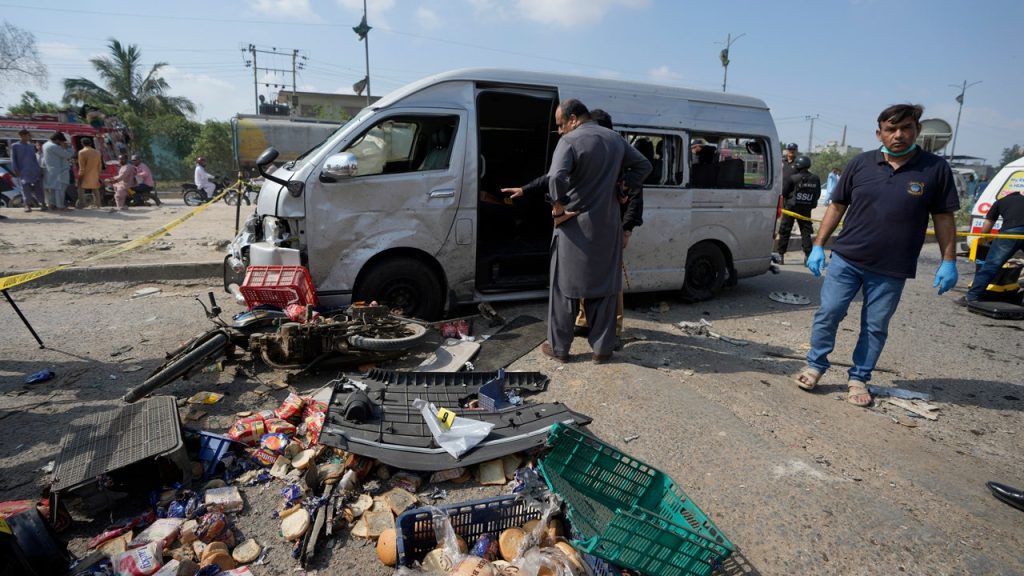A suicide bombing near a van carrying Japanese autoworkers in Karachi, Pakistan, left three bystanders injured but the Japanese nationals unharmed. The Japanese nationals were heading to an industrial area where they worked when the attack occurred. Police escorting the Japanese returned fire, killing one of the attackers. President Asif Ali Zardari and Prime Minister Shehbaz Sharif condemned the attack and praised the police for their swift response. The attackers have not been identified, but suspicion falls on a small separatist group or the Pakistani Taliban due to recent attacks on security forces and Chinese workers in the country.
In a separate incident, an Afghan Taliban religious scholar was killed in an attack in Quetta, Pakistan. The scholar, Mohammad Omar Jan Akhundzada, was shot inside a mosque by unidentified gunmen. The Taliban spokesperson Zabihullah Mujahid denounced the killing, stating that Akhundzada taught at a jihadi seminary in Afghanistan and was a member of the Taliban oversight committee of Islamic scholars. Many Afghan leaders and scholars had returned to Afghanistan following the Taliban’s takeover, raising questions as to why Akhundzada was still in Pakistan at the time of his death.
The bombing incident in Karachi is one of several attacks targeting foreigners and Chinese workers in Pakistan, particularly those involved in projects related to the China-Pakistan Economic Corridor. In recent years, such attacks have increased, posing a threat to the security and stability of the region. While Japanese nationals working in Pakistan have not been frequent targets of attacks, the incident serves as a reminder of the dangers faced by foreign workers in the country. The timely response from police and guards helped thwart the attack, preventing further casualties.
The violence in Pakistan highlights the ongoing security challenges faced by the country, including threats from separatist groups and militant organizations. Despite efforts to eliminate terrorism, attacks continue to pose a threat to the safety of civilians and foreign nationals. The Pakistani government has vowed to take action against those responsible for the attacks and ensure the safety of all residents and visitors in the country. The international community has also expressed concern over the rise in violence and called for increased efforts to address the root causes of extremism and promote peace and stability in the region.
The attack on the Japanese nationals in Karachi and the killing of the Afghan Taliban scholar in Quetta underscore the complex security situation in Pakistan and the broader region. The incidents raise questions about the effectiveness of counterterrorism measures and the ongoing threat posed by extremist groups. As authorities investigate the attacks and work to identify the perpetrators, efforts to enhance security and prevent future incidents will be crucial. The incidents serve as a reminder of the importance of coordinated international efforts to combat terrorism and promote peace and security in Pakistan and beyond.


